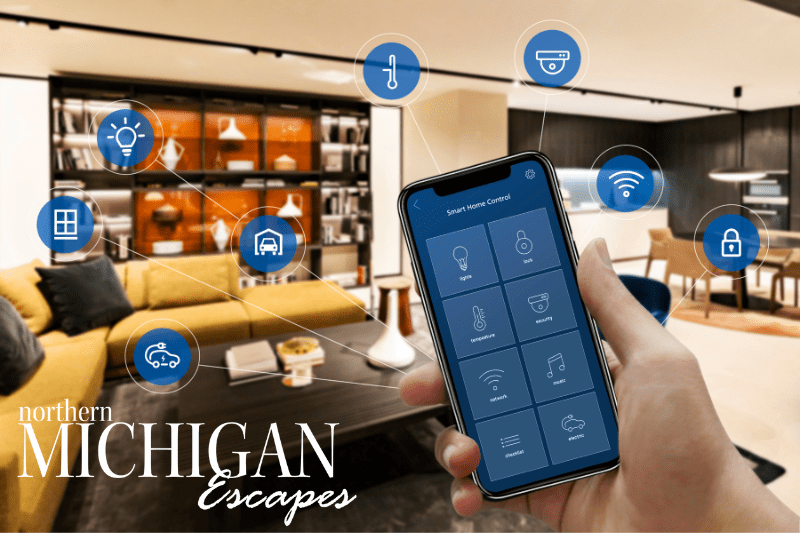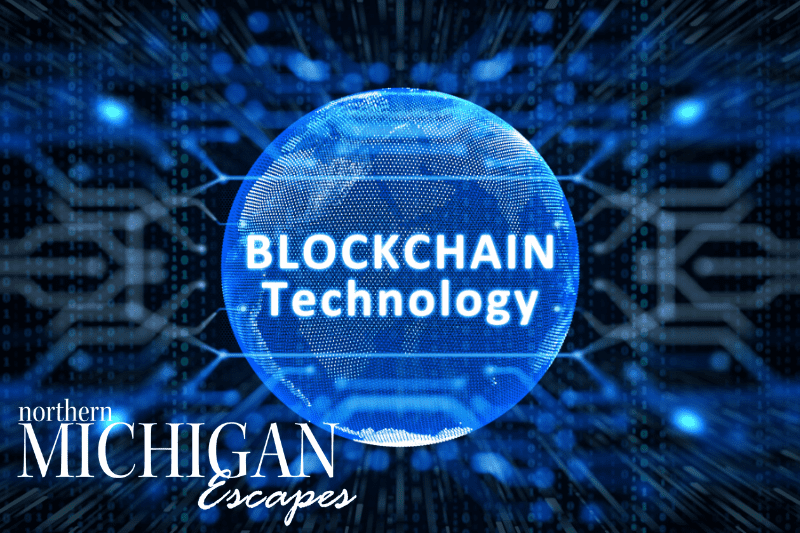Call Us for Questions or Reservations: (231) 459-4257 | Contact Us

The real estate industry has always been vital to the economy, and Northern Michigan is no exception. This region boasts some of the most stunning landscapes in the country, making it an attractive destination for homebuyers and investors alike. However, the future of real estate in Northern Michigan and beyond has challenges.
The industry is rapidly evolving, driven by emerging technologies, changing consumer preferences, and economic trends. In this article, we will explore the exciting possibilities for the future of real estate in Northern Michigan and beyond. From smart homes to green energy, virtual tours to blockchain technology, we will examine the latest trends, innovations, and strategies shaping the industry and driving growth in this dynamic region.
We may use historical data to inform current trends and technology in the US real estate sector. We can use that data to predict home purchasing and selling reasonably. (Click here to see all Northern Michigan Waterfront Lifestyle Homes for Sale)
Smart homes are revolutionizing the real estate industry, offering homeowners and buyers advanced features and increased convenience. From voice-activated assistants to home automation systems, innovative home technology is becoming more prevalent in homes nationwide, including Northern Michigan and beyond.
A smart home is a residence equipped with devices that can be controlled remotely or automatically through the internet. These devices, including lighting, heating, air conditioning, security systems, and appliances, are connected to a network that allows homeowners to control them using a smartphone, tablet, or another internet-enabled device.
Smart homes are designed to increase convenience, improve energy efficiency, and enhance security, offering homeowners a more comfortable and technologically-advanced living space. With the rise of the Internet of Things (IoT), smart homes are becoming increasingly popular in Northern Michigan and beyond as more homebuyers seek these advanced features.

Smart homes offer a variety of benefits that can enhance homeowners’ quality of life and provide increased peace of mind. Some of the main advantages of smart homes include the following:
Smart homes offer a range of benefits that can improve homeowners’ quality of life and increase the value of their properties.
Innovative home technology is rapidly evolving, constantly introducing new devices and features. Some of the latest innovative home technology trends include:
As innovative home technology continues to evolve, we will likely see even more advanced features and capabilities introduced in the future. For homeowners in Northern Michigan and beyond, these innovative home technology trends offer exciting possibilities for increasing convenience, improving energy efficiency, and enhancing security.

Smart homes are becoming increasingly popular in Northern Michigan, and other regions as more homebuyers seek advanced features and increased convenience. In Northern Michigan, intelligent homes offer unique benefits, such as remotely controlling heating and cooling systems, which can be especially useful in a climate where temperatures fluctuate dramatically throughout the year. Additionally, smart homes can help reduce energy costs in regions with higher prices than the national average.
Beyond Northern Michigan, smart homes are also gaining popularity in other regions nationwide. In urban areas, smart homes can provide added security and convenience, while in rural areas, smart homes can help improve energy efficiency and reduce maintenance costs.
As innovative home technology continues to evolve and become more affordable, we will see even more smart homes being built and renovated in Northern Michigan and beyond. For homeowners, this presents an opportunity to increase the value of their properties, improve their quality of life, and stay ahead of the curve in a rapidly-evolving real estate market. Whether you’re a homebuyer, seller, or real estate professional, intelligent homes are worth considering as part of your real estate strategy.
Green energy has become increasingly important in the real estate industry. With concerns about climate change and rising energy costs, more buyers and investors seek sustainable properties offering environmentally-friendly features and reduced energy consumption. This article will explore the importance of green energy in real estate, the latest technologies, and the benefits of green real estate developments.
Green energy is becoming increasingly important in real estate as more homebuyers and investors seek sustainable properties offering environmentally-friendly features and reduced energy consumption. Green real estate has become a hot topic in Northern Michigan and beyond due to climate change and rising energy costs. This article will explore the importance of green energy in real estate, the latest technologies, and the benefits of green real estate developments. We’ll also take a closer look at some of the green real estate developments in Northern Michigan and examine how green energy is shaping the future of the real estate industry.
Green energy is essential in real estate development as the world becomes more environmentally conscious. From solar panels to geothermal heating and cooling systems, green energy technologies offer a range of benefits that can help reduce energy costs, increase property values, and promote sustainability. In addition, green real estate developments are often eligible for tax incentives and other financial benefits, making them attractive to buyers and investors.
Whether you’re a homeowner, investor, or real estate professional, understanding the importance of green energy in real estate is crucial to staying ahead of the curve in an ever-evolving industry. By incorporating green energy technologies into your properties, you can benefit the environment, increase your property value, and appeal to a growing number of eco-conscious buyers.
Green energy technologies are becoming increasingly important in real estate as more homebuyers and investors seek sustainable properties offering environmentally-friendly features and reduced energy consumption. Some of the latest green energy technologies include:
These are just a few examples of the many green energy technologies available to homeowners and investors. By incorporating these technologies into their properties, they can benefit the environment and reduce energy costs, increase property values, and appeal to a growing number of eco-conscious buyers.
Green real estate developments are becoming increasingly popular in Northern Michigan, and other regions as more developers seek to meet the growing demand for sustainable properties. In Northern Michigan, green real estate developments offer unique benefits such as reducing energy costs, promoting environmental sustainability, and providing a healthier living environment for residents.
One example of a green real estate development in Northern Michigan is The Village at Grand Traverse Commons, a mixed-use story in Traverse City that incorporates energy-efficient features such as geothermal heating and cooling, green roofs, and sustainable building materials. Another example is The Brownfield Site Redevelopment Project in Petoskey, which involves repurposing a former industrial site into a mixed-use development that includes energy-efficient buildings, pedestrian-friendly streetscapes, and public green spaces.
Beyond Northern Michigan, there are many other green real estate developments across the country, such as the Hudson Yards development in New York City, which features LEED Gold-certified buildings, green roofs, and an energy-efficient district heating and cooling system.
Green real estate developments benefit the environment and offer financial benefits such as tax incentives and increased property values. As green energy technologies evolve and become more affordable, we will likely see more green real estate developments in Northern Michigan and beyond. For homeowners, investors, and real estate professionals, green real estate presents a unique opportunity to stay ahead of the curve in a rapidly-evolving industry and contribute to a more sustainable future.
Green real estate, which refers to properties designed to be energy-efficient and environmentally sustainable, offers a range of benefits to homeowners, investors, and the environment. Some of the key benefits of green real estate include:
Overall, green real estate offers a range of benefits that can improve homeowners’ quality of life, increase property values, and promote environmental sustainability. As the demand for sustainable properties grows, we will see even more green real estate developments in Northern Michigan and beyond, creating new opportunities for homeowners, investors, and real estate professionals.

Virtual tours have become a game changer for the real estate industry, offering buyers and sellers a new level of convenience and accessibility. With virtual tours, buyers can explore homes and properties from the comfort of their computer or mobile device without needing in-person visits. On the other hand, sellers can reach a wider audience and showcase their properties more engaging and immersively.
Virtual tours have become increasingly popular in the real estate industry, offering buyers and sellers a new level of convenience and accessibility. With virtual tours, buyers can explore homes and properties from the comfort of their computer or mobile device without needing in-person visits. On the other hand, sellers can reach a wider audience and showcase their properties more engaging and immersively.
The rise of virtual tours can be attributed to several factors, including technological advancements, changing consumer preferences, and the COVID-19 pandemic. Virtual tours offer a safer alternative to traditional in-person showings, allowing buyers and sellers to continue the real estate transaction process even during periods of social distancing.
In addition, virtual tours can help buyers narrow down their options and make more informed decisions, as they can view multiple properties quickly and from virtually anywhere in the world. For sellers, virtual tours can help showcase their properties more engagingly and memorably, potentially leading to faster sales and higher prices.
Virtual tours are becoming increasingly popular in Northern Michigan and beyond, with many real estate professionals embracing this technology as a critical part of their marketing strategy. As virtual tour technology continues to evolve and become more accessible, we will likely see even more virtual tours in the real estate industry, transforming the way we buy and sell homes.
Virtual tours offer a range of benefits to both homebuyers and sellers in the real estate industry. Some of the key benefits of virtual tours include the following:
For Homebuyers:
For Sellers:
Overall, virtual tours offer a range of benefits to homebuyers and sellers, helping to make the real estate transaction process more convenient, efficient, and engaging. As virtual tour technology continues to evolve and become more accessible, we will likely see even more widespread adoption of this technology in the real estate industry.
Virtual tour technology is rapidly evolving, constantly introducing new features and capabilities. Some of the latest virtual tour technology trends include:
As virtual tour technology continues to evolve and become more accessible, we will likely see even more advanced features and capabilities introduced in the future. For homebuyers and sellers, these virtual tour technology trends offer exciting possibilities for enhancing the real estate transaction process and staying ahead of the curve in a rapidly-evolving industry.
Virtual tours have become an increasingly popular tool for buying and selling homes in Northern Michigan and beyond. With virtual tours, buyers can explore homes and properties from their computer or mobile device, giving them a better sense of the property before scheduling an in-person showing. Moreover, virtual tours offer sellers a new way to showcase their properties and reach a wider audience.
In Northern Michigan, virtual tours offer unique benefits, particularly in more remote or rural areas where in-person showings may need to be more practical. Virtual tours can help buyers better understand the property’s layout and features while also saving time and money by reducing the need for travel.
Beyond Northern Michigan, virtual tours are also gaining popularity in urban areas, offering a more convenient and efficient way to view properties in a competitive market. Virtual tours can help buyers narrow their options and make more informed decisions while also assisting the sellers to stand out in a crowded market.
As virtual tour technology evolves and becomes more accessible, we will likely see even more virtual tours in the real estate industry. For buyers and sellers in Northern Michigan and beyond, virtual tours offer a powerful tool for making the real estate transaction process more convenient, efficient, and engaging.
Blockchain technology is changing how we think about real estate transactions, offering a more secure, transparent, and efficient way to buy and sell properties. By using a decentralized ledger system, blockchain technology can streamline the real estate transaction process, reduce fraud, and eliminate the need for intermediaries.

Blockchain technology is a digital ledger system that allows for secure and transparent transactions between two parties without intermediaries such as banks or financial institutions. A blockchain is a database that records transactions securely and is decentralized, with each block in the chain containing a unique transaction record.
The technology was initially developed for cryptocurrency transactions, such as Bitcoin, but it has since been adopted in various industries, including real estate. Blockchain technology offers a range of benefits, including increased transparency, security, and efficiency.
One of the key features of blockchain technology is its decentralized nature, which means that no central authority or intermediary controls the transactions. Instead, each transaction is verified and recorded by a network of computers, making it virtually impossible to alter or falsify records.
In addition, blockchain technology offers increased transparency, as each block in the chain is visible to all participants in the network. Any changes or updates to the blockchain are instantly visible to all parties, reducing the risk of fraud or error.
Overall, blockchain technology has the potential to revolutionize the real estate industry by offering a more secure and transparent way to conduct transactions. As the technology continues to evolve and become more widely adopted, we will likely see even more innovative uses of blockchain technology in the real estate industry and beyond.
Blockchain technology offers a range of benefits for real estate transactions, including:
Overall, blockchain technology has the potential to revolutionize the real estate industry by providing a more secure, efficient, and transparent way to conduct transactions. As the technology continues to evolve and become more widely adopted, we will likely see even more innovative uses of blockchain technology in the real estate industry and beyond.
Blockchain technology is already used in several innovative ways in the real estate industry. Some examples of blockchain applications in real estate include:
Overall, blockchain technology offers a range of innovative applications for the real estate industry, from facilitating transactions to improving property management and creating new investment opportunities. As the technology continues to evolve and become more widely adopted, we will likely see even more innovative uses of blockchain technology in the real estate industry and beyond.
Blockchain technology is poised to play a significant role in the future of the real estate industry. As the technology continues to evolve and become more widely adopted, we can expect to see a range of new applications and use cases emerge in the real estate sector.
One of the key benefits of blockchain technology for real estate is increased security and transparency. By providing a secure and decentralized system for recording transactions, blockchain technology can help reduce the risk of fraud and error, increasing trust and transparency between buyers and sellers.
In addition, blockchain technology has the potential to streamline and simplify the real estate transaction process, reducing the need for intermediaries such as banks or title companies. This can lead to faster transactions, lower costs and a more efficient real estate market.
Looking to the future, we can expect to see even more innovative uses of blockchain technology in the real estate industry, from tokenizing real estate assets to creating decentralized title registries. As more real estate professionals and investors become familiar with blockchain technology and its potential benefits, we expect widespread technology adoption in future years.
Overall, the future of blockchain in real estate looks bright, offering a range of benefits and opportunities for investors, buyers, and sellers alike. As technology evolves and matures, we will likely see even more exciting developments in the intersection of blockchain and real estate.
Economic trends play a significant role in the real estate market, affecting everything from home prices to inventory levels. In Northern Michigan and beyond, economic trends are constantly evolving, driven by various factors such as interest rates, job growth, and population shifts.
With that said, here are some of our predictions about what the future of real estate might look like:
In discussing What The Future of Real Estate – Northern Michigan & Beyond and home-buying trends is, we must look at one of the most talked-about age demographics in real estate: millennials. Millennials are often criticized for their aversion to buying their first property.
However, recent polls and home sales figures point to a changing tide. Millennials are settling down. Over 65% of millennials say they plan to purchase their first home within the next five years.
With young families and professionals planning to buy homes shortly, we may soon see a boom in home purchases.
Because millennials tend to rent longer than previous generations, several developers have built apartments with higher-end facilities to appeal to their older, higher-paying clientele.
These all-inclusive flats may affect millennials’ aspirations for their first house. If so, compact residences with better amenities and easier access to downtown regions may become more competitive.
Find A Great Northern Michigan Home Today!
When people consider new technology’s impact on historic sectors, they think of Uber upending the taxicab industry or Amazon upending publishing and book sales.
However, most sector-specific technologies evolve within the industry rather than displacing it. Present technologies will likely improve but not necessarily change the sector.
Nonetheless, real estate technology is transforming how consumers buy and sell properties. Several firms are improving 3D imagery to create lifelike digital walkthroughs of unbuilt homes. This program may change how homes are designed by giving families a virtual tour of their homes before construction begins. Experimenting with the features, colors, and options will be more accessible than ever.
Similar technologies will become more common. Every year, real estate will be improved to make things easier for consumers, sellers, agents, and developers. This modest class includes websites that let users research prospective real estate agents or firms.
Modern consumers increasingly trust online reviews of organizations. Therefore the most honest and helpful agents and corporations will stand out. Scams are already at a disadvantage. Overall, online reviews will continue to be necessary.
The US property value history suggests long-term real estate appreciation. While annual growth varies, the more significant and longer-term real estate trend rewards most patient homeowners.
In other words, the national real estate market will likely do what it has done for a long time: offer a safe long-term investment.
Now let’s talk about elements of real estate investment that I believe will change in the short term. Two significant predictions come to mind: vacation rentals and residential redevelopment.
Vacation Rentals: As previously stated, most technologies do not revolutionize sectors overnight. The vacation rental business is one of the few changes. I’m referring to Airbnb, the decade-old startup that allowed homeowners (and even tenants) to earn money from vacation rentals. Previously dominated by hotels and waterfront residences, the sector now demands a large piece of what is otherwise a regular housing market.
Vacation rentals will become more popular. The number of people owning properties to engage in the holiday rental industry will expand, leading to innovations that combine the best of both worlds. Urban investors must discover innovative ways to differentiate their properties as the market becomes increasingly competitive.
Residential Redevelopment: Active investors have flooded the house-flipping sector. This indicates that the difference between the purchase price and resale value of flipped homes may continue to narrow as more investors compete for the best deals.
House flippers may find identifying investment properties with enough margin to make essential repairs and profit challenging. This talent will increasingly distinguish successful redevelopers from investors who only see properties at auction.
Our list could have included many more categories. Not every facet of our industry is represented. Ultimately, we believe real estate has a bright future, especially in Northern Michigan. Inspire yourself to dream significantly about your real estate plans.
Q: What are some other emerging technologies in the real estate industry?
A: Other emerging technologies in the real estate industry include artificial intelligence, 3D printing, and augmented reality.
Q: How has COVID-19 impacted the real estate industry in Northern Michigan and beyond?
A: COVID-19 has increased demand for rural and suburban properties as more people seek larger homes and outdoor spaces. It has also accelerated the adoption of virtual technologies in real estates, such as virtual tours and remote showings.
Q: What economic trends affect real estate in Northern Michigan and beyond?
A: Economic trends affecting real estate in Northern Michigan and beyond include low mortgage rates, rising home prices, and an inventory shortage.
The future of real estate in Northern Michigan and beyond is full of exciting possibilities driven by emerging technologies, changing consumer preferences, and economic trends. From smart homes to green energy, virtual tours to blockchain technology, many innovations and strategies are shaping the industry and driving growth in this dynamic region.
Whether you’re a homebuyer, investor, or real estate professional, staying informed about these trends and developments will be crucial to staying ahead of the curve and succeeding in the rapidly evolving real estate market. If you’re interested in buying or selling real estate in Northern Michigan or beyond, contact Northern Michigan Escapes for expert guidance and personalized service
